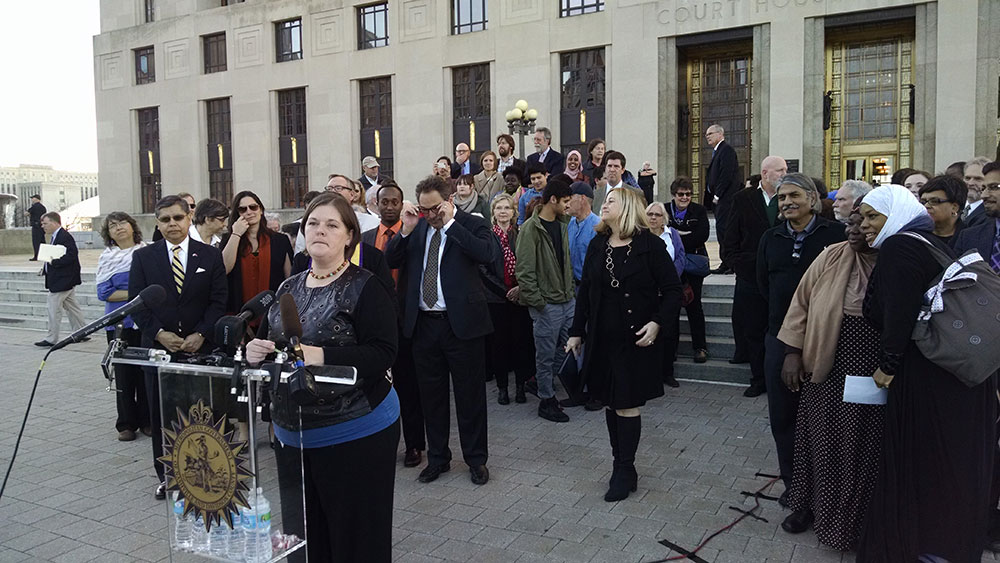
The leader of the Metro Human Relations Commission is stepping down after seven years in charge. Mel Fowler-Green led the small city agency as it worked on policies related to inclusion, equity, LGBTQ rights and immigrant access to government services.
Her term overlapped with four mayoral administrations and her team’s efforts resulted in several reports that identified areas where Metro could do better.
“[Metro] policies … should always have some base in what is equitable,” she said. “How do we serve those who are struggling the most in this city?”
Fowler-Green said one accomplishment was completing more community-based research. That includes a three-part series of booklets that detail Nashville’s affordable housing crisis. That research has been used by professors at three local universities, as well as by policymakers and community organizers.
“We had constituents show up at our door and ask for copies of them to share at their house of worship, to share with their book club,” she said, laughing. “That was really exciting!”
She’ll return to private law practice in mid-January with a firm that specializes in plaintiff-side employment and civil rights cases. She’d worked on similar cases prior to joining the commission.
It could take several months for the 17-member Metro Human Relations Commission to hire its next director.
“They’ve just shown me so much love and respect and support. I’m definitely going to miss that,” Fowler-Green said.
Challenges and hopes
As she prepares to leave the commission, Fowler-Green noted one of the challenges of her position was rebuilding trust after each round of turnover in the mayor’s office.
Similarly, she saw community members volunteer to serve on task forces — sometimes multiple times under different administrations — but minimal follow-through on their policy recommendations.
“To see that work sort of put on a shelf, and then see the shelf disappear, it’s frustrating,” she said.
Looking forward, Fowler-Green identified two projects that she hopes the commission will advance: to continue the push to make Metro budgeting more equitable, and to see the city make its services accessible in more languages, building on a study from the commission in 2016.

